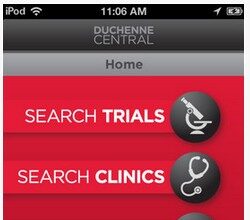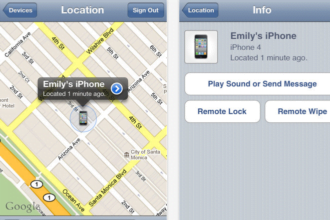
Originally published by MedCityNews.com.
Each of the more than 5 million cases of heart failure in the U.S. is unique, and a health IT solution designed by a cardiologist could help physicians treat them that way.

Originally published by MedCityNews.com.
Each of the more than 5 million cases of heart failure in the U.S. is unique, and a health IT solution designed by a cardiologist could help physicians treat them that way.
Dr. Kevin Courville and software entrepreneur Randy Gray are are hoping their remote heart management app, HF Defender, will do double duty as a “buddy” for patients who’ve experienced heart failure and an evidence-based treatment and management guide for physicians.
Managing heart failure usually involves a mix of pharmacological and non-pharmacological measures, including active monitoring of weight, blood pressure, pulse, sodium intake and physical activity. Gray and Courville’s solution, which runs on desktops, tablets and smartphones, incorporates a patient’s medical profile, comorbidities and heart failure classification and stage into an algorithm that generates unique directives for that patient.
Generally, clinicians acknowledge two types of heart failure: systolic, when the left ventricle of the heart loses its ability to contract normally, and diastolic, when the left ventricle can’t relax normally. But HF Defender distinguishes from many subtypes underneath those categories.
“For example, we see 16 subclasses of systolic heart failure, and each time we dive into a subclass, the algorithm changes, because some comorbidities matter more or less to different subcategories,” said Courville, who built the algorithm based on publicly available clinical trial and medical data.. One subclass might benefit more from a close watch over salt intake, or more frequent visits to a physician, for instance.
At intake, a patient’s medical profile and vital information is entered into the database, and the algorithm goes to work to determine directives for him. From there, the patient or a caregiver is instructed to input his vitals daily into the system via a mobile device or the web. If they aren’t entered by a certain time of day, the patient gets nudged on his smartphone to do that.
When vital signs entered fall outside of the individual’s treatment directives, the provider is immediately notified. For example, rapid weight gain is a marker of worsening heart failure, so that would be important for the physician to know right away. Patients also have the option of sending an emergency alert to the physician at any time.
“The problem now is, even if (a patient is) being treated well, there’s no way to interact with the doctor daily,” Gray said. “(Patients) try to call the doctor and by the time the doctor gets back with them they’re in the hospital.”
That’s no good for the patient or the hospital. Thirty-day readmission rates are high among heart failure patients, but research has suggested that good care coordination, pre-discharge planning and at-home patient monitoring go a long way in keeping those patients out of the hospital.
On the doctor’s side, HF Defender is designed to be a less burdensome way for clinicians to carefully monitor large numbers of patients. When a physician gets an alert about a patient whose vitals are off, the app shows him the patient’s profile (including all of the patient’s medications and co-morbid conditions), points out what the problem is and provides him with the patient’s preferred pharmacy and hospital contact information. The clinician could call the hospital or pharmacy if need be, or send a text or email or make a phone call to the patient. Courville and Gray say the system is intended for use by both cardiologists and non-cardiologist physicians.
Cardio Fortress, the name of the company the duo formed in 2009, is piloting the solution in two clinics in Louisiana, with initial data expected in the next two months. “The most important data right now is how effective are we being at keeping people out of the hospital and improving quality of life and the accuracy of our physicians utilizing the software,” Courville said.
It’s also putting together a first round of funding and participating in a new biotech incubator created by the Louisiana Business and Technology Center and the Pennington Biomedical Research Center at Louisiana State University.
Other software developers have found similar opportunities in improving how patients and clinicians manage heart solutions. This one mixes together some of the qualities of apps like AtlantiCare, which reminds patients to weight themselves, take their medication and limit their salt intake, and Alberta Health Service’s decision support app for clinicians.
“Probably the most important thing we think we’ve done is advanced care of CHF patient from a mass treatment to individualized care for every stage and classification of heart failure,” Courville said.
[Screen cap from Cardio Fortress website]








